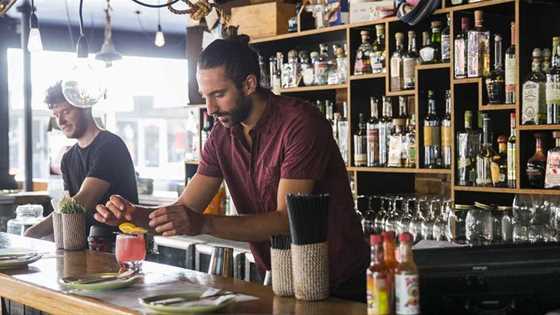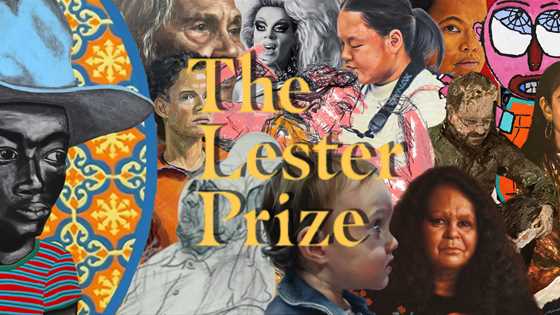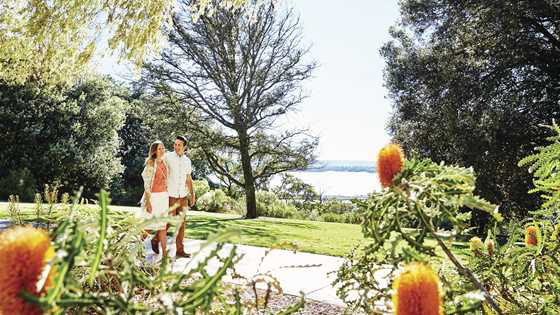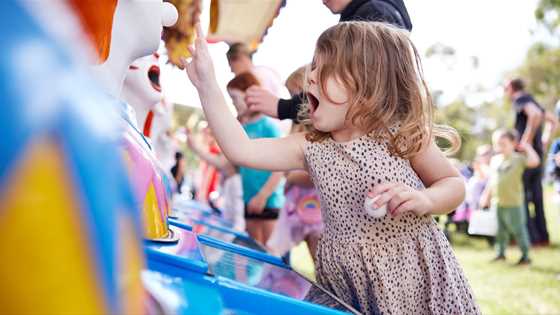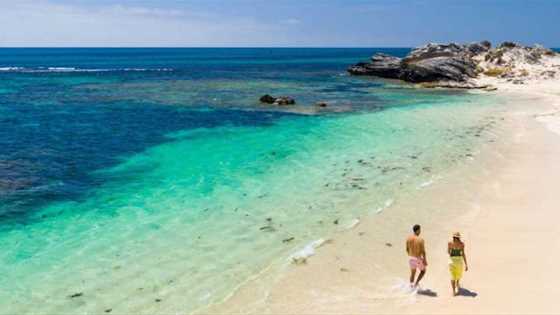‘Voluntourism’ in Cambodia is on the rise, with increasing numbers of West Australians and others delivering much-needed assistance. But could their best intentions be doing more harm than good?
It's a noble enough idea. Perhaps you're concerned about poverty and hardship in less developed countries, and you're keen to do something to help… but what? How can you get in and really make a difference?
Sooner or later, you'll hear about the practice of taking your holiday in a country where help is desperately needed and appreciated, where you can donate your time to improve the lot of those less fortunate than yourself. In Cambodia, for instance, there is no shortage of orphanages that need not only essential building work, but also caring role models for the children living there. You get a break from your day-to-day life, and you get to do some good into the bargain.
It's no wonder twenty-somethings with social consciences are queuing around the block to sign up.
Yes, 'voluntourism' is a growth industry, an on-the-ground way to do good and see tangible results for your efforts, in the shape of new buildings or smiling kids.
Unfortunately, things are rarely that simple. The truth of it is that by taking a voluntourist trip to Cambodia, despite all your good intentions, you could be
making matters worse.
Kate Moore, a spokesperson for UNICEF Australia, says there has been a 75 per cent increase in the number of orphanages in Cambodia since 2005… but more than 75 per cent of the children living in them are not even orphans.

Samaky Foundation directors Brendan Dhu and Jessica Winters.
The problem, she explains, is that there are incentives for local families to place their children into bogus institutions, in order to attract tourist dollars. Parents are exchanging their children for money and the hope of giving them a better future. Sadly, the reverse is often true.
Those in the know say it's not uncommon for locals to work through the night to demolish and rebuild walls, floors and fences that were constructed with the best of intentions, partly because labour contributed by the unskilled volunteers isn't up to scratch, but also because if the building can be perpetuated, the volunteers – and their cash – will keep on coming.
And then there's the issue of the emotional effect on the children themselves, who have strangers arrive in their lives, bond with them... and then leave.
Australian Volunteers International manager of international projects Emma Hess believes volunteers need to give more thought to where they participate. "Some of these people are in the most desperate and difficult times of their lives and that's not a spectator sport," she says.
Geraldine Cox – one of only a handful of foreigners to have been granted Cambodian citizenship – agrees. She directs Sunrise Children's Villages, a government-recognised, registered NGO comprising three orphanage centres. None of them now accept short-term volunteers.
.jpg)
Geraldine Cox (centre) with Cambodian children of Sunset Villages.
"There is a big push to stop voluntourism," she says. "In the beginning, 20 years ago, when I had tourists living in, the children bonded very quickly with them, then when they left after a couple of months, the children felt abandoned all over again. It was not a productive exercise."
The only volunteers at Sunrise work in the office, where they are needed most, fundraising and working on social media. All visitors are required to be accompanied by a staff member at all times.
Children coming to Sunrise must be "the neediest of the needy", says Geraldine.
The project's extensive social welfare program goes out to each village before children are taken in, to make sure they are legitimately in need. What's more, Sunrise Children's Villages have an extensive reintegration policy, where children can be safely returned to their family homes when they are ready.
Five years ago, a friend and I volunteered at a Cambodian orphanage. We fundraised and accepted money from family and friends before setting off, with our hearts and pockets bulging, to a small rural village two hours from the capital, Phnom Penh. We simply arrived, walked through the gates and met the kids. We spent our days teaching English, playing soccer and taking tourist snaps, and often saw other tourists playing with the children too, unconstrained by background checks, police clearances, or working-with-children papers.
I often wondered who was getting more out of the experience – us or the kids? – but it never crossed my mind that the children may not be in the best place. I remember thinking they were so lucky to be saved from poverty.

For Christie, it never occured that the children in orphanages were not benefitting (photography Zoe Walker).
Institutions, however, are not always the best places for kids, a view that UNICEF strongly promotes: "If a child has family, has a community, has an environment in which it can be safe – and families are by far and away the safest environment for a child – that's a much more supportive environment."
Armed with this information, I set out to learn if my own 'life changing' experience had been part of a scam. I caught up with Lynne Noack, of New Futures Organisation, who helped restructure the orphanage where I worked. She reassured me that the organisation was now registered with the government and that child-protection policies were in place.
Of the institution's 43 children, 32 had gone back with their families, and the remaining 11 had been adopted by the centre director.
Lynne says her experience as a university liaison officer and sponsorship manager had shown that voluntourism doesn't work.
"People whiz through for one day to a week, because it's cheap to stay there, get some happy snaps, come back home and say, 'Aren't I wonderful, I've been volunteering at an orphanage'," she says. "These children have already lost a lot, they are constantly losing – people coming through and then out again."
It's enough to make you ask yourself, "What's the point?". But done right, voluntourism can work. The key, says UNICEF's Kate Moore, is not money – it's time.
Lynne agrees, encouraging volunteers to commit to staying for longer. "If you're going to be a voluntourist and stay for three months, that can be very helpful."

Of the children Christie worked with, the majority were returned to family environments (photography Zoe Walker).
Volunteers need to come with a purpose. In 2012, for instance, Perth couple
Jessica Winters and Brendan Dhu transformed a slum near Siem Reap into the Samaky Foundation community school. They now host only highly skilled volunteers who have a defined purpose and time frame with which to work.
"One of our biggest objectives is community capacity building – making sure the local people are making change in their own lives," says Jessica. "People get off the plane and just want to help someone out. It's great, we want to harness that capacity, but there's so much misinformation."
It's vital, Kate says, that orphanage volunteers do their research therefore, to ensure they are contributing to a positive, reputable organisation. "The internet is a really good resource," she says, suggesting the UNICEF-backed Think Safe Friends-International program as a good place to start.
Just as important, says Emma Hess, is taking the time to ask yourself some hard questions about why you want to volunteer. The most important of them?
"What's in it for me as a volunteer but also what's in it for the community?"
QUESTIONS TO ASK BEFORE DEPARTING
Is the organisation registered with the Cambodian Government?
Are there Child Protection Policies in place?
Do they have a website, with listings of annual financial reports?
Are they linked to a reputable body, such as conCERT or AVID?
Who are the direct recipients of raised funds?
Are there volunteer codes of conduct?
What is their risk management plan?
Are volunteers given adequate preparation?
Do volunteers take jobs away from local people?
Do you have the skills required for the job?
Do you have a formal purpose for once you're there?
Will the organisation and/or community benefit from your presence there?
Would they benefit more from donations or sponsorship?
Further Research
AVID Australian Volunteers for International Development
VOICE Volunteers in Community Engagement (AVID's under 30s program)
conCERT Connecting Communities, Environment and Responsible Tourism
Think Child Safe: Children are not Tourist Attractions (a Friends-International + UNICEF campaign)
UNICEF United Nations Children's Fund
ACFID Australian Council for International Development
FORUM International Forum for Volunteering in Development
My Khmer Heart A documentary based on Geraldine Cox's autobiography, Home Is Where the Heart Is


